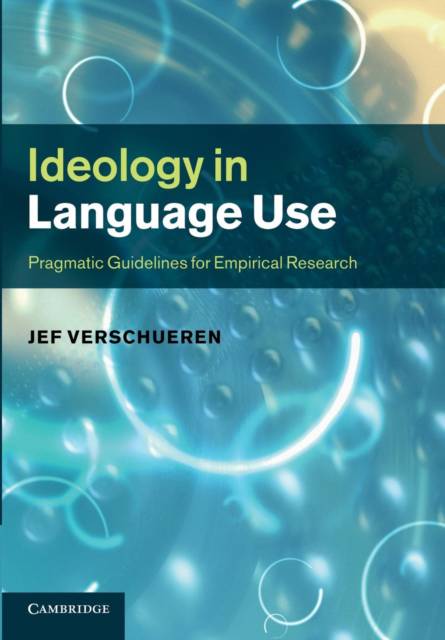
Bedankt voor het vertrouwen het afgelopen jaar! Om jou te bedanken bieden we GRATIS verzending (in België) aan op alles gedurende de hele maand januari.
- Afhalen na 1 uur in een winkel met voorraad
- In januari gratis thuislevering in België
- Ruim aanbod met 7 miljoen producten
Bedankt voor het vertrouwen het afgelopen jaar! Om jou te bedanken bieden we GRATIS verzending (in België) aan op alles gedurende de hele maand januari.
- Afhalen na 1 uur in een winkel met voorraad
- In januari gratis thuislevering in België
- Ruim aanbod met 7 miljoen producten
Zoeken
Ideology in Language Use
Pragmatic Guidelines for Empirical Research
Jef Verschueren
Paperback | Engels
€ 85,45
+ 170 punten
Omschrijving
The relationship between language and ideology has long been central to research in discourse analysis, pragmatics, sociolinguistics and linguistic anthropology, and has also informed other fields such as sociology and literary criticism. This book, by one of the world's leading pragmatists, introduces a new framework for the study of ideology in written language, using the tools, methods and theories of pragmatics and discourse analysis. Illustrations are drawn systematically from a coherent corpus of excerpts from late nineteenth- and early twentieth-century history textbooks dealing with episodes of colonial history and in particular the 1857 'Indian Mutiny'. It includes the complete corpus of excerpts, allowing researchers and students to evaluate all illustrations; at the same time, it provides useful practice and training materials. The book is intended as a teaching tool in language-, discourse- and communication-oriented programs, but also for historians and social and political scientists.
Specificaties
Betrokkenen
- Auteur(s):
- Uitgeverij:
Inhoud
- Aantal bladzijden:
- 392
- Taal:
- Engels
Eigenschappen
- Productcode (EAN):
- 9781107695900
- Verschijningsdatum:
- 5/12/2013
- Uitvoering:
- Paperback
- Formaat:
- Trade paperback (VS)
- Afmetingen:
- 170 mm x 244 mm
- Gewicht:
- 621 g

Alleen bij Standaard Boekhandel
+ 170 punten op je klantenkaart van Standaard Boekhandel
Beoordelingen
We publiceren alleen reviews die voldoen aan de voorwaarden voor reviews. Bekijk onze voorwaarden voor reviews.









